Who knows. Maybe if I hadn't spewed that horrible hacking cough all over everyone's peaceful savasana, I would never have chatted with Carrie Bacon--local acupuncturist/herbalist/massage therapist/Ayurvedic rockstar--or learned about her tasty cold remedy. If that's the case, I say so be it. Once again, my body has captured my attention by aching and being kind of gross. But fall's a pretty good time to get cozy with a little self-care and attention. And the stillness that this illness imposes is full of more than sniffling, I think... stay tuned for the new insights and adventures that are brewing. For now, here's something to steep on your stovetop.
Thanks to Melissa at Seva for her sassy vinyasa and for starting the conversation, and to Carrie for the directions and fun facts. After class, I fixed myself a mug of this magical elixir (per the best version of Carrie's instructions that I could recall with my brain half-full of snot). It was so warm, soothing and delicious I had to share! Cheers to fall!
Thanks to Melissa at Seva for her sassy vinyasa and for starting the conversation, and to Carrie for the directions and fun facts. After class, I fixed myself a mug of this magical elixir (per the best version of Carrie's instructions that I could recall with my brain half-full of snot). It was so warm, soothing and delicious I had to share! Cheers to fall!
| Peel the ginger and place it in a pot of boiling water. I used a chunk of ginger about 3"x1" for a large mug. Use more or less to taste. Steep for a bit. Add honey and lemon, and cayenne if you're feeling as sassy as Melissa's inversion vinyasa. Helpful Carrie hint: don't add the lemon to boiling water. The high heat will neutralize the pH alkaline-forming properties of lemon. If you've misplaced your high school chemistry section of brain cells like I have, here's what google taught me about that: our bodies function best in a neutral pH state--leaning toward alkaline, not acidic. When our bodies tend toward acidic pH, we use up reserves of good stuff like vitamins and minerals, and disease feels more at home. Lemons, though acidic, fall into the alkaline-forming category, meaning they become alkaline after they're ingested and digested, promoting a healthy, disease-stifling pH environment in the body. Some more fun facts: Ginger has been shown to have anti-inflammatory properties, and honey is naturally antibacterial and antimicrobial. And all of it tastes great and smells delicious! Good stuff! | |
PS--I experimentally stored my boiled ginger root in the fridge overnight. I pulled it out again today before class, hoping to avoid some savasana-coughing, cut it into pieces, boiled it, steeped it, strained it and added lemon and honey. I still managed to hack up a lung during savasana, but the tea was just as potent and delicious as the first go-round!
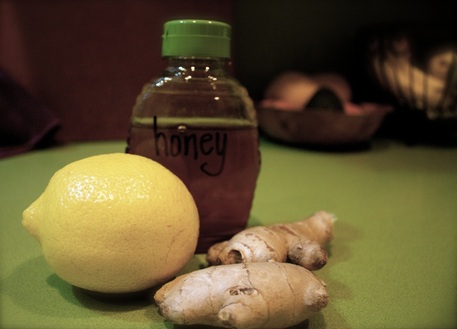
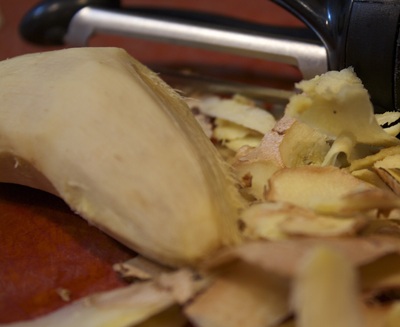
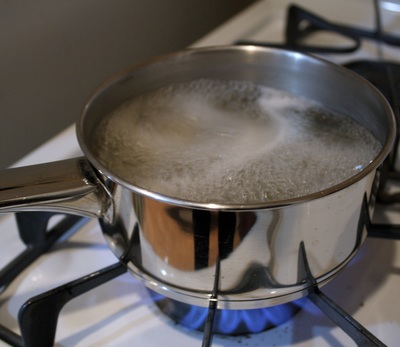
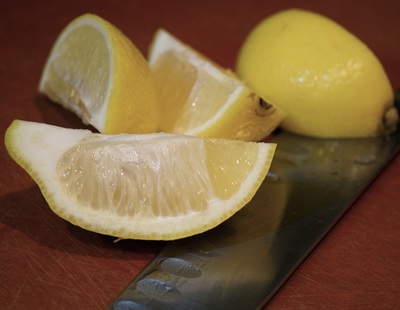
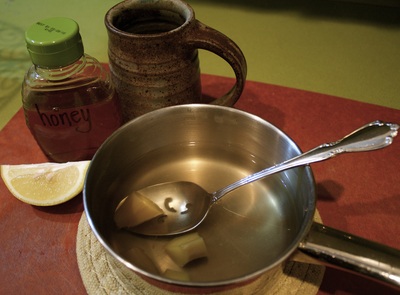
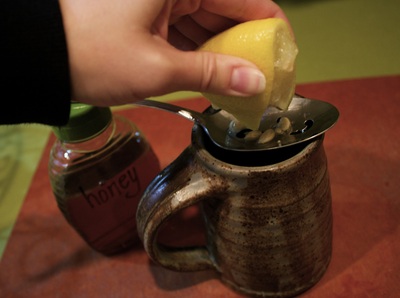
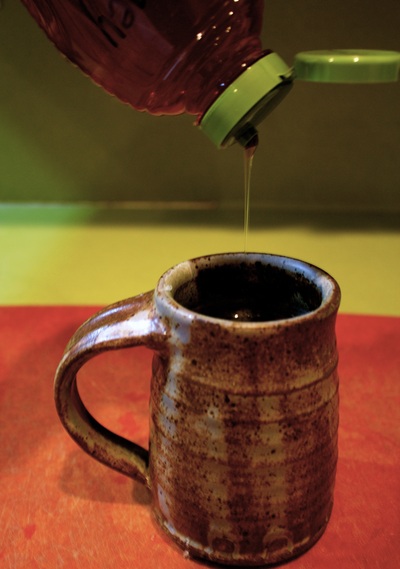
 RSS Feed
RSS Feed